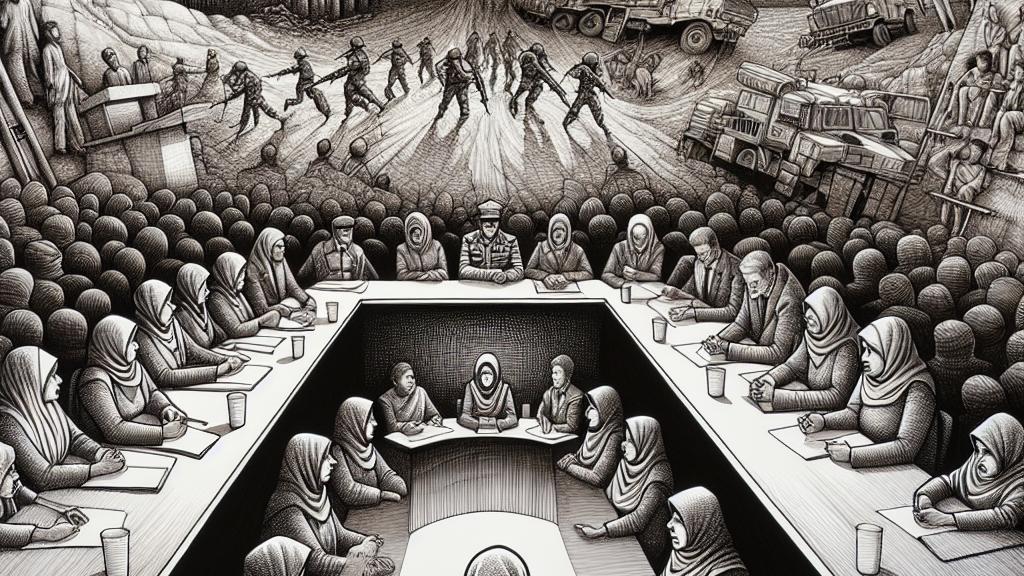Putin's Provocative Parallels: Echoes of Beslan in the Kursk Conflict
Overview
- Putin's comparison of Ukraine's Kursk incursion to the Beslan school siege illuminates deep-rooted national trauma.
- The tragic events of Beslan claimed 333 lives, highlighting the profound impact on Russian society, particularly children.
- Ukraine's military advances expose vulnerabilities in Russia's strategic command, leading to significant embarrassment for the Kremlin.

Contextualizing Putin's Remarks
In a striking address given in August 2024, President Vladimir Putin invoked the memory of the tragic 2004 Beslan school siege as he discussed Ukraine’s military actions in the Kursk region. Meeting with mothers who suffered tremendous loss in Beslan, he sought to frame the current conflict in stark terms, suggesting that Russia is once again a victim of external threats characterized as 'neo-Nazis.' The Beslan tragedy, which brutally claimed the lives of 333 hostages, including 186 children, remains a painful chapter in modern Russian history. By evoking this particular event, Putin not only aims to evoke collective grief but also to instill a sense of urgency among the populace, thereby rallying support for his administration’s ongoing military efforts against Ukraine.
Military Dynamics and Challenges in the Kursk Region
The implications of Putin's statements arise against a backdrop of significant challenges within the Russian military landscape. Recent Ukrainian incursions into the Kursk region highlight a strategic shift that has left the Kremlin in a precarious position. As Ukrainian forces successfully execute cross-border operations, they have not only reclaimed territory but have also exposed critical flaws in Russian military command and readiness. U.S. officials have acknowledged that these bold operations demonstrate a high level of coordination and tactical innovation reminiscent of established military strategies. The effective maneuvers by Ukraine serve as a stark reminder of the potential failure of Russian strategies, compelling a reevaluation of the Kremlin's approach in what appears to be an emerging pattern of operational inadequacy.
Implications of Historical Comparisons
Putin's rhetorical strategy of drawing parallels between past tragedies and current military conflicts raises significant ethical questions about the manipulation of historical memory. By leveraging the emotional weight of the Beslan incident, he not only seeks to solidify nationalistic sentiments but also to obscure the complexities of the ongoing Russia-Ukraine conflict. Critics argue that such comparisons can trivialize the memories of victims while failing to address the multifaceted reality of military engagements today. As Russia faces increasing scrutiny both domestically and internationally, the actions and narratives employed by its leadership become critical in shaping public perception and influencing geopolitical dynamics. Ultimately, the interplay between collective trauma and military action underlines the broader struggle for narrative control in an era marked by conflict and resilience.

Loading...